CATARACT IS CURABLE. DON’T LET CATARACT SYMPTOMS AFFECT YOUR QUALITY OF LIFE.
Cataract is a leading cause of age-related preventable blindness worldwide
|
Did you know that 62.6% of all blindness in India is a result of cataract, which means that it is reversible with timely surgery and can be completely avoided? Cataract is a commonly occurring vision problem that develops as you grow older, due to clouding of the eye’s natural crystalline lens caused by a gradual build-up of proteins. Most people develop cataracts after the age of 60, in one or both eyes. Cataract symptoms include hazy, blurred or double vision, sensitivity to light and glare, difficulty seeing in poor lighting conditions, difficulty in distinguishing contrast changes, and dull colours. Without cataract treatment, your vision will continue to deteriorate and affect daily activities. |
Cataract eye surgery is one of the most commonly performed procedures worldwide, where the cloudy natural lens is removed and replaced with an artificial intraocular lens for clear vision. Advances in cataract surgery techniques have made this procedure efficient and safe, with more predictable refractive outcomes, minor or very rare cataract complications, and quicker cataract surgery recovery time.
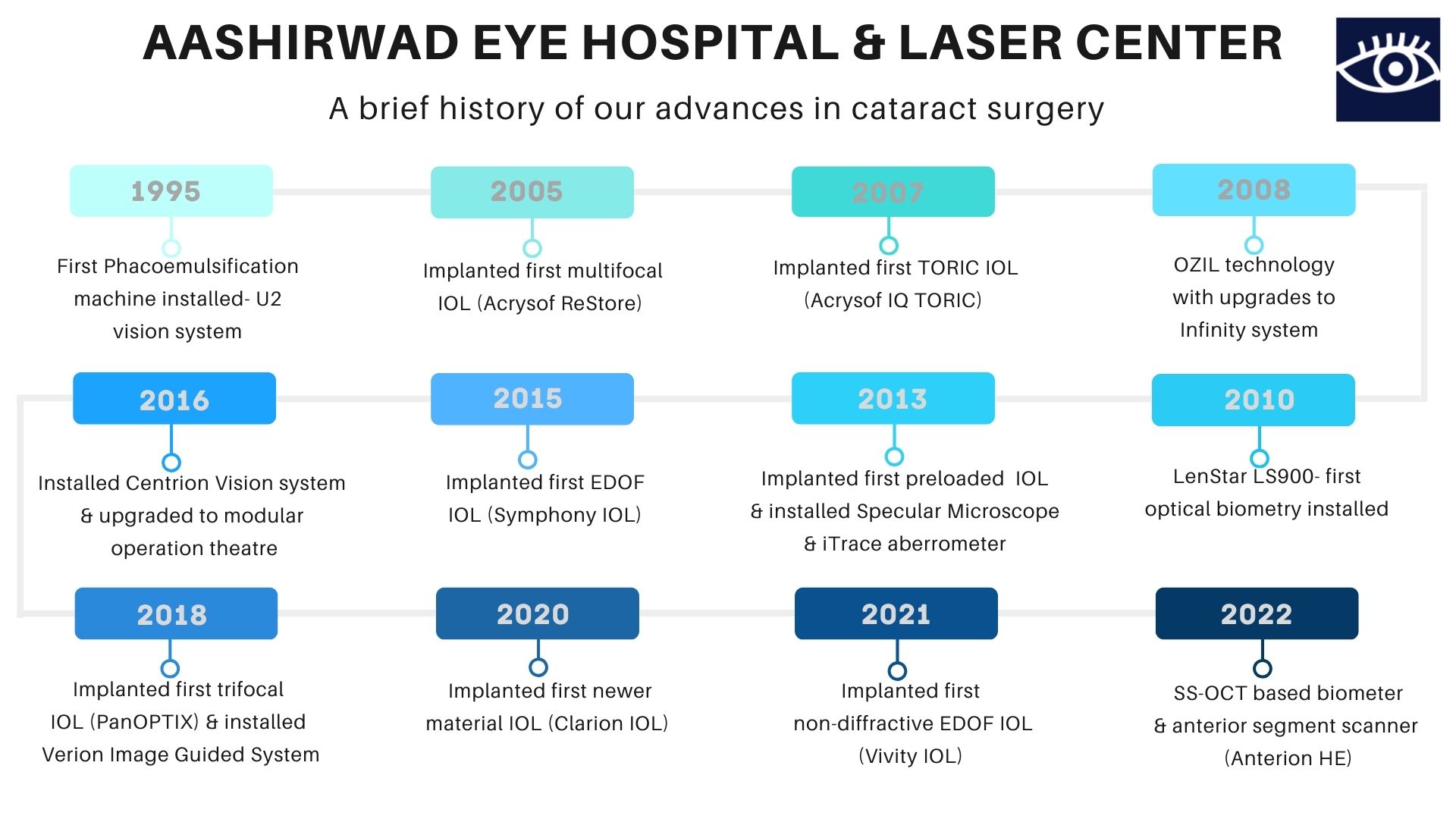
Cataract surgery patients at aashirwad eye hospital are offered an individualized treatment plan based on the age, the severity of cataract vision loss, and daily activities to obtain the best vision possible post-cataract surgery. We also give special care to other pre-existing eye conditions like glaucoma and/or diabetic retinopathy while preparing you for your cataract surgery.
CATARACT SYMPTOMS :
Cataract does not cause any observable changes in early stages, As the cataract progresses, symptoms can include :
- Blurred, cloudy or dim vision
- Difficulty seeing at night or in low-light situations
- Being sensitive to bright lights and glare
- Seeing halos
- Needing stronger glasses and more frequently
- Colours appearing faded or yellow
- Double vision in the affected eye.
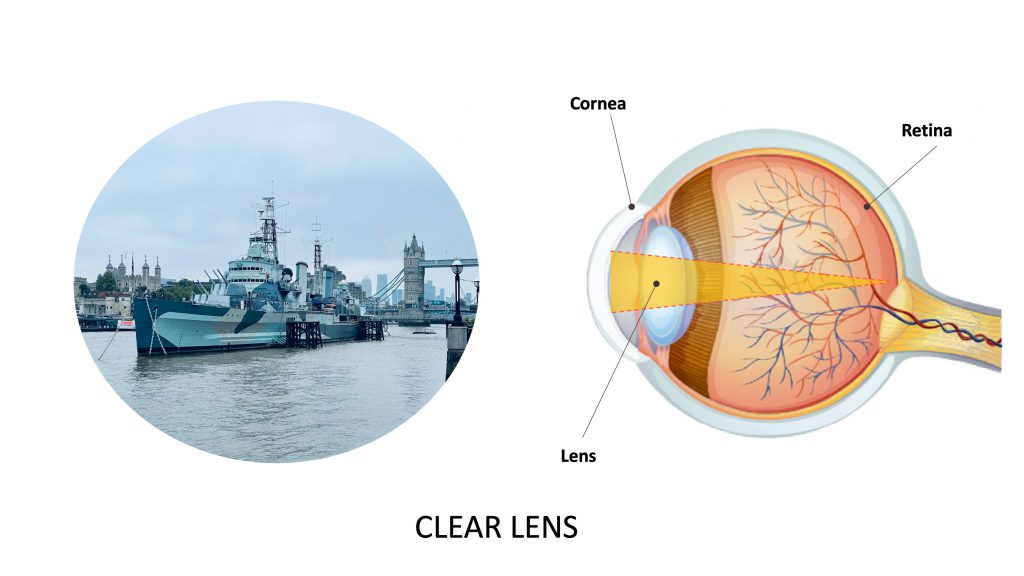
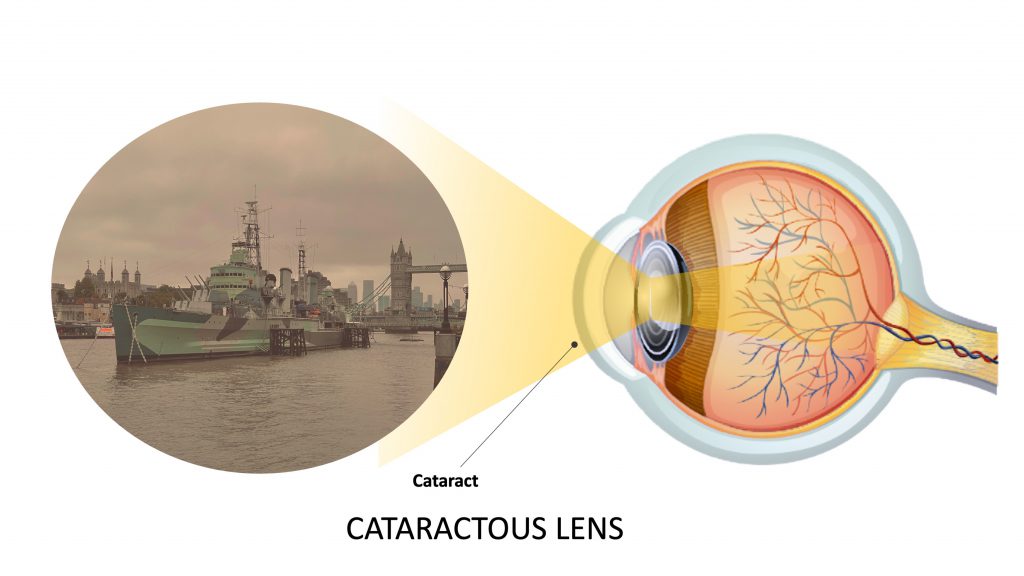
Aashirwad Eye Hospital is an all-in-one centre for cataract diagnosis, pre-surgery evaluation, cataract treatment and post-surgery care.
ADVANTAGES AT AEH :
- Patient friendly staff
- Unmatched safety standards
- Equipped with latest technology
- Experienced consultant ophthalmologists
- Detailed pre-surgery work-up
- All ophthalmic diagnostic facilities under one roof
- Dedicated counsellors and surgical co-ordinators to solve each of your queries and doubts.
- Exclusive modular OT with jointless flooring for optimum sterility
- Extensive post-surgery care
- Dedicated anaesthetist at all time
GRADES OF CATARACT
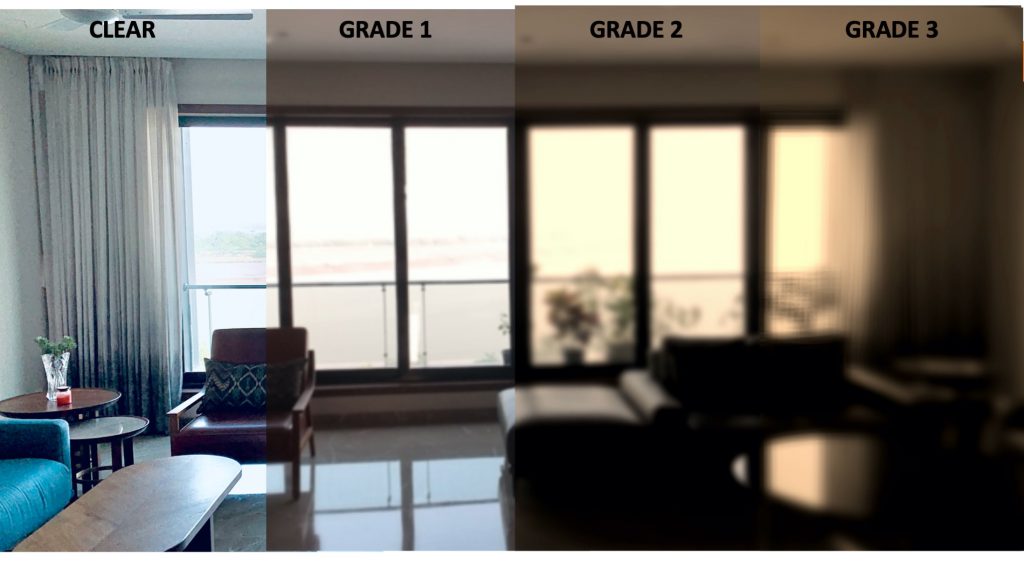
PHACOEMULSIFICATION
Phacoemulsification – is a sutureless type of cataract surgery wherein a machine with an ultrasound probe is used to emulsify (break down and remove). As the entire cataract is emulsified in situ, a smaller incision of 2.4-2.8 mm is sufficient for this cataract procedure (smaller incision size results in lesser astigmatism and thus better quality of vision). A foldable intraocular lens is implanted after the emulsification of the nucleus. This surgery is performed under topical anesthesia as a day care procedure after which the patient is free to go home. This is a painless and modern cataract surgery technique that offers quick healing and faster recovery.
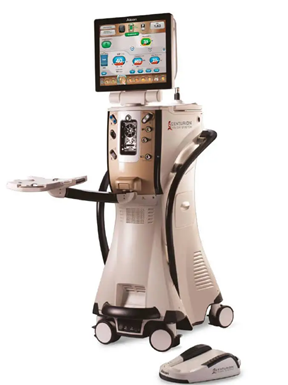
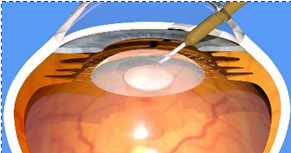
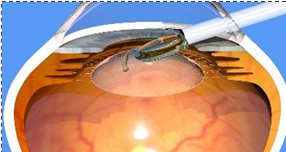
MICS (MICRO INCISION CATARACT SURGERY)
MICS (Micro Incision Cataract Surgery) – In this type of advanced cataract surgery, the standard phacoemulsification is performed with an incision size ranging between 2.2-2.4 mm as it has the benefit of faster healing and induces lesser astigmatism.
CATARACT SURGERY LENS OPTIONS
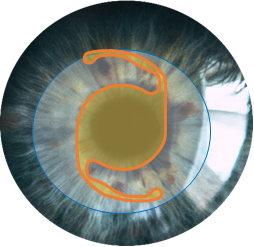
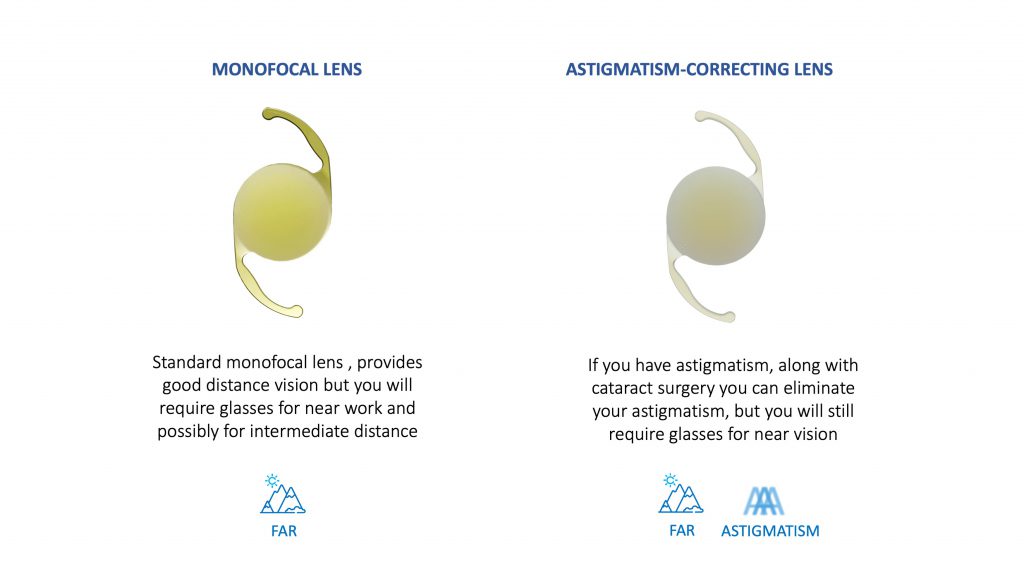
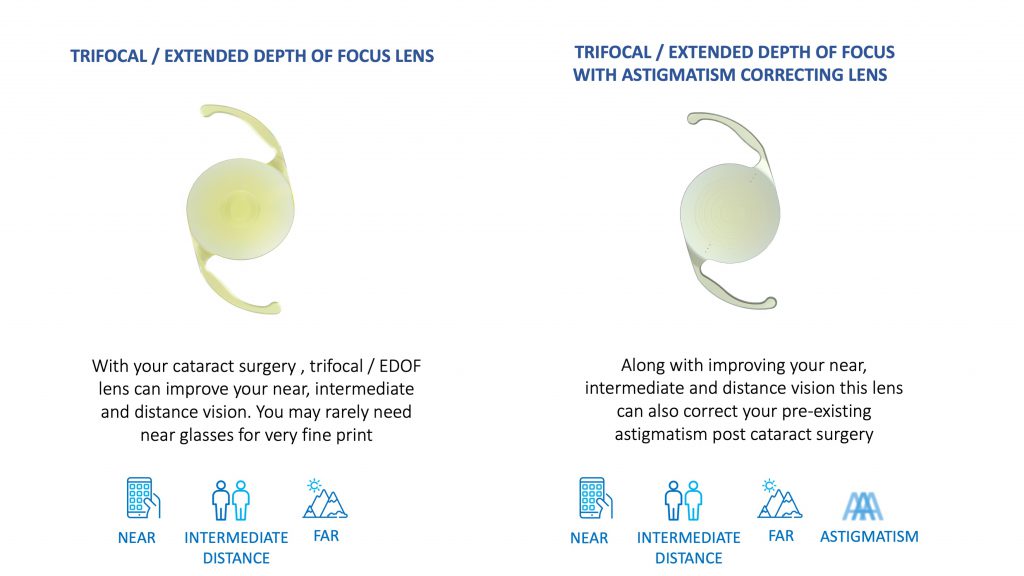
CATARACT CONSULTATION – PATIENT PROCESS FLOW
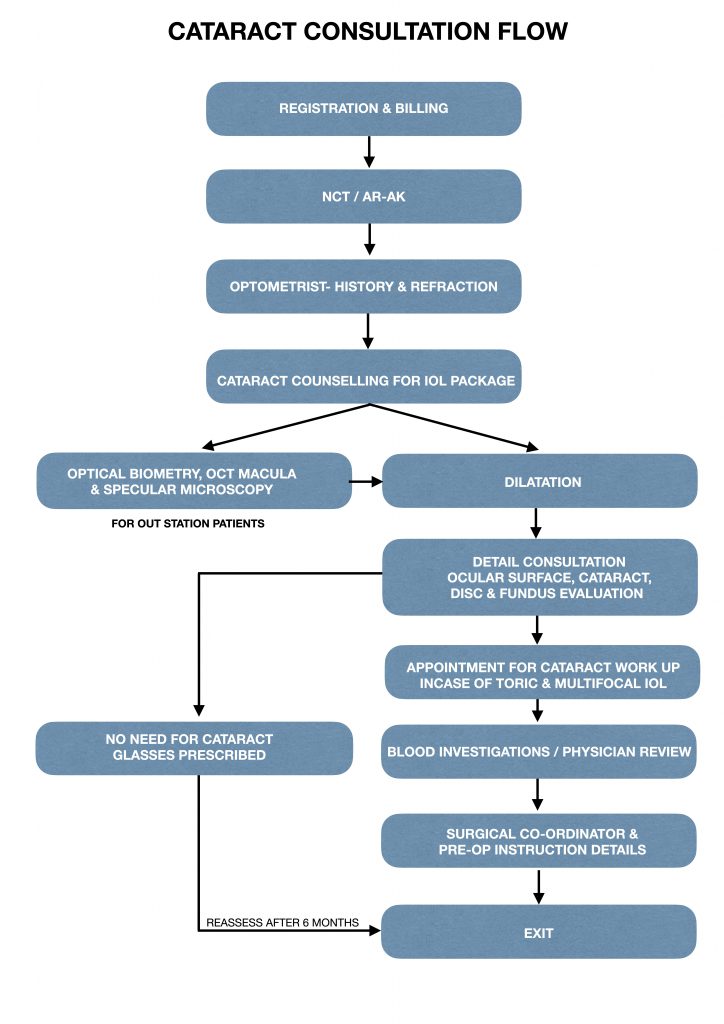
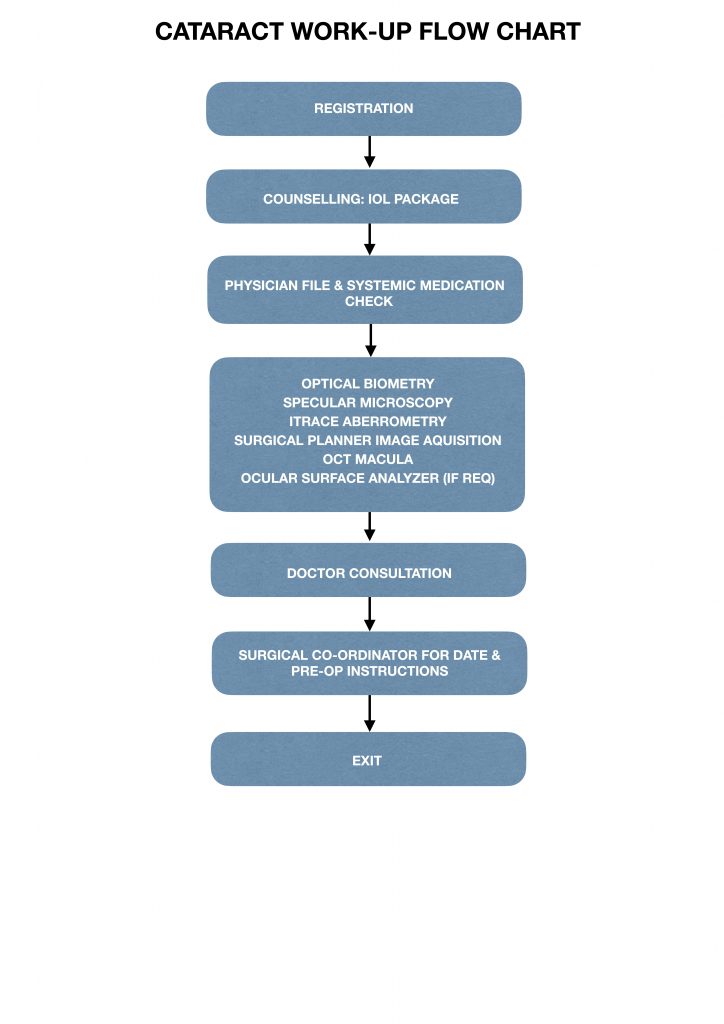
[helpie_faq group_id=’43’/]
[helpie_faq group_id=’44’/]
[helpie_faq group_id=’45’/]

